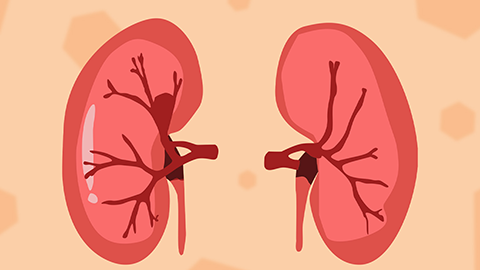What are the causes of increased kidney volume in patients with renal atrophy?
Under normal circumstances, an increase in kidney volume in patients with renal atrophy may be caused by fluid retention, improper diet, acute glomerulonephritis, pyelonephritis, acute exacerbation of diabetic nephropathy, and other factors. If discomfort symptoms occur, it is recommended to seek timely treatment at a regular hospital. Detailed explanations are as follows:
1. Fluid Retention
Patients with renal atrophy have impaired kidney function and weakened urination ability. If water cannot be effectively excreted from the body, fluid may accumulate within the kidneys, causing enlargement. Daily water intake should be strictly controlled, and excessive consumption of soups, porridge, and other liquid foods should be avoided. Monitor urine output changes and adjust fluid intake according to medical advice.
2. Improper Diet
Long-term excessive intake of high-protein and high-salt foods increases the metabolic burden on the kidneys, leading to renal tissue edema and enlargement. Adjust the dietary structure by reducing consumption of high-protein foods such as meat and eggs, as well as high-salt foods like pickled vegetables and preserved products. Opt for low-salt, high-quality, low-protein diets, such as moderate consumption of milk and lean meat.

When infections or other factors trigger acute glomerulonephritis, glomerular filtration function declines and inflammatory exudates in the kidneys increase, leading to kidney enlargement. Under medical guidance, medications such as penicillin V potassium tablets, cefixime dispersible tablets, and furosemide tablets may be used to control infection, reduce edema, and improve kidney function.
4. Pyelonephritis
Infections caused by pathogens such as bacteria can lead to pyelonephritis, resulting in congestion and edema of the renal pelvis and calyx mucosa, with accumulation of inflammatory secretions, which causes kidney enlargement. Under medical guidance, antibiotics such as levofloxacin injection, amoxicillin-clavulanate potassium tablets, and ceftriaxone sodium injection can be used for anti-infective treatment. Additionally, increased water intake is recommended to promote urine excretion.
5. Acute Exacerbation of Diabetic Nephropathy
Poor blood glucose control in diabetic patients can lead to acute exacerbation of diabetic nephropathy, causing damage to renal microvessels, edema, and exudation, which results in kidney enlargement. Blood glucose must be strictly controlled, and medications such as insulin injection, metformin hydrochloride sustained-release tablets, and dapagliflozin tablets may be used under medical guidance. Protein intake should also be restricted to reduce the burden on the kidneys.
In daily life, maintaining a regular routine and avoiding fatigue are important. Regular monitoring of kidney function and urinalysis is necessary to promptly detect kidney changes. Strict adherence to a low-salt, low-fat, high-quality, low-protein diet is essential. Maintaining emotional stability and actively cooperating with treatment can help prevent worsening of the condition.






